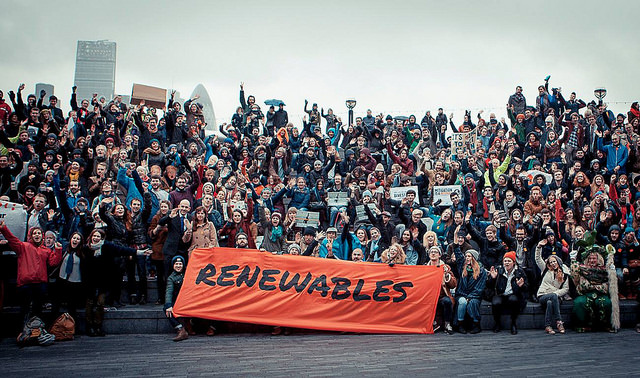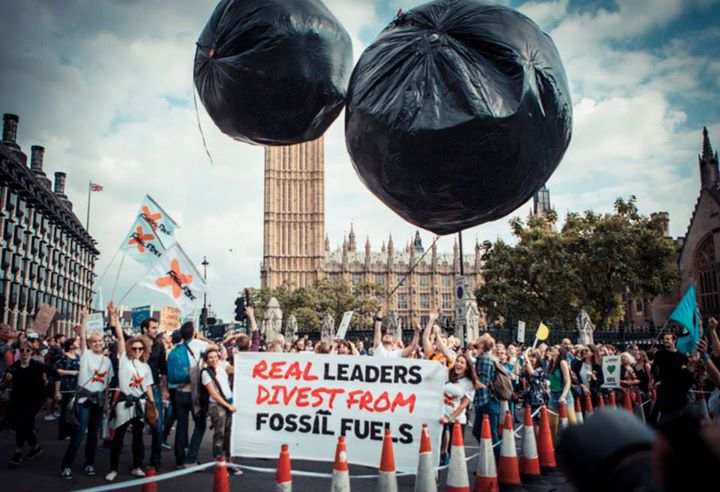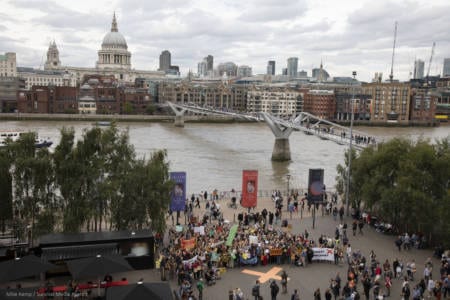By Hanna:
If you have glanced at the news last month, you may have seen dramatic headlines about climate change, featuring “urgent wake-up calls” and “final warnings” from climate scientists.
Background to this short-lived flurry of attention on climate change was the publication of a landmark report from the UN’s Intergovernmental Panel on Climate Change (IPCC) on Oct 8th. It outlines the consequences of global warming of 1.5°C, written by the world’s leading climate scientists and based on painstaking analyses of over 6,000 studies.
The main finding? Limiting global warming to 1.5°C is both highly advisable and extremely challenging.
Rising temperatures, rising threats
In the 2015 Paris climate talks, the world agreed to curb global temperature rise to 2°C, with an aspirational target of 1.5°C. That half degree may sound like a minor difference, but the new IPCC report clearly shows just how significant it is.
The impacts on both humans and ecosystems will be dramatically worse at 2°C of warming compared to 1.5°C. Missing the 1.5°C target means 10 million more people around the globe will suffer from rising sea levels. Extreme heatwaves, as experienced across Europe this summer, will be more severe and affect over 400 million additional people in a 2°C compared to a 1.5°C scenario.
Irreversible coral reef die-off will be close to 100% at 2°C, and across the natural world, plants and animals are twice as likely to lose half their habitat at 2°C versus 1.5°C.

The carbon countdown
So every fraction of warming makes a huge difference. And time is working against us. Our planet today is already 1°C warmer than normal, and we now only have a very small window left to stabilise the climate at 1.5°C. That’s because our carbon budget for the 1.5°C target is nearly up – if we continue with business as usual, by 2021 our greenhouse gas emissions will likely breach that threshold.
While this all sounds extremely dire, the IPCC report also highlights that changing course is still possible. And the good news is – we know exactly what we need to do.
Our carbon emissions, which drive climate change, need to fall rapidly, reaching net-zero by 2050. We are currently far off this target, and immediate unprecedented changes across our economies and societies will be required to meet it – from a rapid phase-out of fossil fuels to large-scale reforestation. Expensive? Sure. But not nearly as expensive as doing nothing.
So what are we waiting for? The science is terrifying, the incentives strong, the solution clear and the pathway mapped out. What we need now to steer away from a climate catastrophe: political ambition and leadership.

Leadership, please!
Our elected representatives have a unique responsibility to tackle this issue – climate change is far too big and complex to be solved by individuals. As extreme weather events become more frequent and public concern rises, political hesitation or ambiguity on such a crucial issue is simply no longer acceptable. Today’s decisions will dramatically affect future lives, and action now is far better than action tomorrow.
What are the most urgent steps to take? The majority of our carbon emissions are generated by burning oil, coal and gas. A rapid transition away from fossil fuels is therefore paramount. Continued funding of fossil fuel extraction is fundamentally incompatible with tackling climate change.
Time to act, time to divest
This is the insight at the core of the global divestment movement. There is a growing consensus around the world that investing in fossil fuels in 2018 is unethical and morally wrong (not to mention financially risky!).
Global divestment campaigns have led institutions worth more than $7tn in assets to withdraw their investments from oil, coal and gas. Hundreds of cities, universities and private organisations around the globe have decided to stop funding climate chaos. But the fossil fuel sector still receives huge subsidies and tax relief, as was just recklessly reinforced in the latest UK budget.
Financial support for fossil fuels also comes directly from UK MPs: the Parliamentary Contributory Pension Fund (PCPF), the main pension fund for MPs in the House of Commons, currently invests millions of pounds in fossil fuel corporations. It refuses to disclose the exact amount, but we do know the largest investment is in the oil company Shell, while there is no single investment in renewable energy.
MPs calling for climate action must realise that their own pension investments completely undermine any climate-friendly rhetoric.
Calling on all MPs: Divest Parliament!
Last month during Green Great Britain week, the UK government encouraged everyone to ensure their pensions are invested ethically, to help combat climate change. We warmly welcome this initiative and urge our elected representatives in Westminster to do the same.
The Divest Parliament campaign calls on all MPs to lead on climate action by urging their pension fund to phase-out its fossil fuels investments. Almost 200 MPs from across the political spectrum have already signed our campaign pledge. And the momentum is growing every day – around the country, more and more concerned constituents are calling on their MPs to stand up for the climate.
Of course, climate action can’t end with divestment. We need our political leaders to push the low-carbon transition on all fronts, from transport to agriculture. But as the saying goes, it’s good to put your own house in order first. It will be a clear and very welcome signal that our political leaders are taking on the climate challenge.
To all MPs who are yet to sign – join us now! At the brink of climate catastrophe, we urgently need your ambition and leadership.
The world simply won’t get many more “final warnings”.
